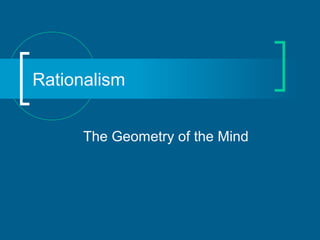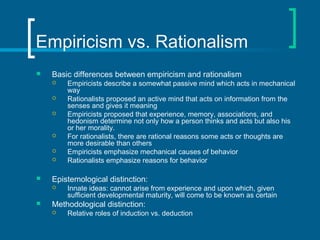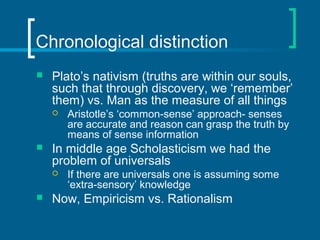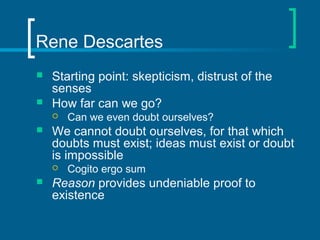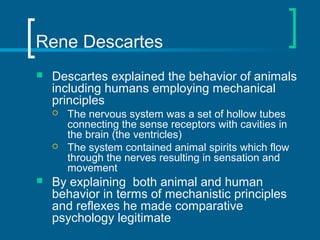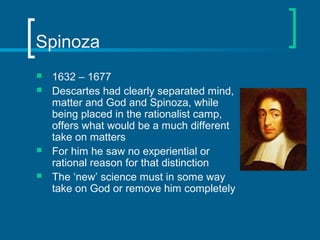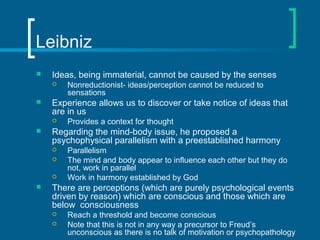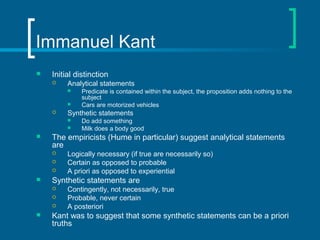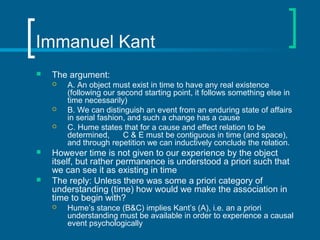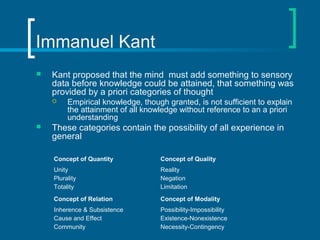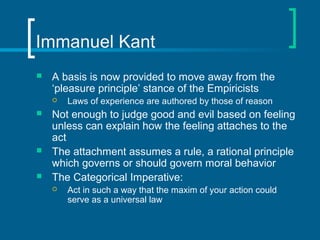This document discusses the differences between rationalism and empiricism in epistemology. Rationalism holds that there are innate ideas that cannot come from experience alone, while empiricism believes that all knowledge comes from sensory experience. Key rationalist philosophers discussed include Descartes, Spinoza, and Leibniz. Descartes used rational intuition and deduction to establish certainty. Spinoza believed God, nature, and mind were one substance. Leibniz argued against the tabula rasa view and proposed parallelism between mind and body with preestablished harmony.
